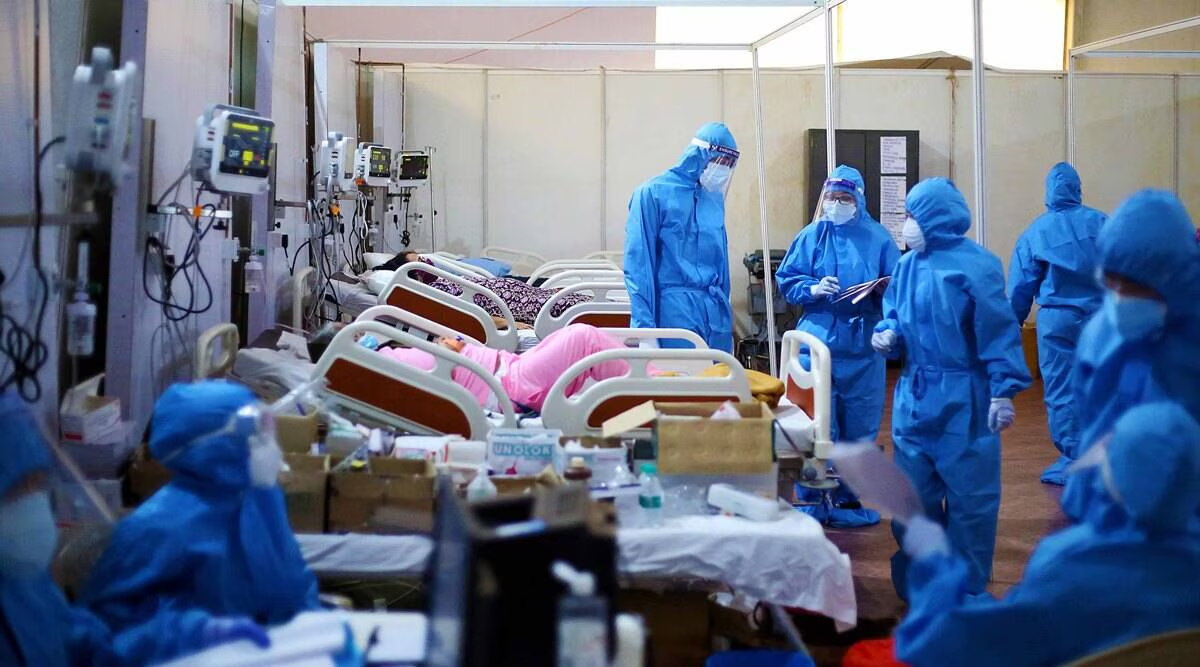New Delhi, 03 June 2025: As India witnesses a renewed surge in COVID-19 infections, health authorities and doctors are urging the public to remain vigilant. The country has seen its active COVID-19 cases climb past 3,900, with states like Kerala, Maharashtra, Delhi, Tamil Nadu, and Karnataka reporting a steep increase in new infections. This sudden rise is linked to newly emerging variants such as JN.1, NB.1.8.1, and LF.7 — all considered highly mutated sub-lineages of Omicron.
Who Is at the Highest Risk Right Now?
According to leading medical experts, the most vulnerable groups remain:
- Senior citizens (above 60 years)
- People with chronic health conditions such as diabetes, heart disease, or kidney problems
- Individuals with compromised immune systems
- Unvaccinated individuals or those who haven’t received a booster dose
- Young children with respiratory illnesses
Dr. Neelima Sharma, a senior virologist and internal medicine specialist based in Delhi, warns, “With the new variants being more immune-evasive, those who are immunocompromised or elderly are at a significantly higher risk of developing severe symptoms.”
She adds that while hospitalizations remain relatively low compared to the early pandemic waves, complacency can quickly reverse the progress made so far.
COVID-19 Symptoms Linked to New Variants
Unlike the original strains of the coronavirus, the newer variants—especially JN.1 and LF.7—are showing milder but prolonged symptoms. Most commonly reported signs include:
- Fatigue and general body weakness
- Mild fever or low-grade hypothermia
- Sore throat and dry cough
- Nasal congestion or mild sinus discomfort
- Gastrointestinal issues like diarrhea or nausea
- Muscle aches and joint pain
These symptoms can last between 3 to 7 days, but in high-risk individuals, they may progress into more severe respiratory problems. “If you’re experiencing persistent breathlessness, chest discomfort, or oxygen desaturation, immediate medical attention is required,” Dr. Sharma notes.
States Under Watch: Kerala, Delhi, Maharashtra
- Kerala tops the chart with over 1,300 active cases, recording 189 new infections in a single day.
- Delhi reported 81 fresh cases along with one COVID-related death, its first in the current spike.
- Maharashtra reported 43 new cases, with Mumbai and Pune contributing the most to the surge.
- Karnataka and West Bengal have also reported daily increases, prompting local governments to issue advisories.
Government Advisory and WHO’s Classification
The World Health Organization (WHO) has labeled NB.1.8.1 and LF.7 as Variants Under Monitoring—not currently of global concern but still requiring attention due to their high transmissibility.
Meanwhile, the Ministry of Health and Family Welfare in India has recommended that citizens:
- Wear masks in crowded public places
- Maintain social distancing
- Practice hand hygiene
- Avoid non-essential travel if showing symptoms
- Get tested if symptomatic and isolate accordingly
Vaccination and Precautionary Measures
Doctors are also emphasizing the importance of vaccination and timely booster doses. Many of the breakthrough infections are being observed in people who have not received their booster shots or have delayed their vaccinations.
Dr. Sharma reiterates, “Vaccines continue to offer significant protection against severe disease and hospitalization. It’s critical that eligible individuals get their booster doses.”
The resurgence of COVID-19 cases in India highlights the unpredictable nature of viral mutations. While symptoms remain manageable for most, vulnerable populations face an increased risk of complications. Early testing, preventive measures, and community awareness remain essential tools in keeping the spread under control.






